DNVN - Domestic and foreign private enterprises are increasingly interested in the energy sector in Vietnam. However, in reality, there are still many barriers that need to be removed from the legal framework, land policies to public-private partnership mechanisms, creating more favorable conditions for this sector.
Many barriers
At the workshop "Encouraging the private sector to participate in investing in Vietnam's energy sector" on February 18 in Hanoi, Mr. Le Tuan Anh - Director of the Department of Industrial and Service Economics (Ministry of Planning and Investment) commented that in order to realize the target of double-digit GDP growth in the coming time, the demand for energy must be met.
In the context of the strong development process towards industrialization and urbanization as well as to ensure energy security and meet the requirements of sustainable development, Vietnam has also issued many important policies, including Resolution 55 of the Central Executive Committee and Power Plan VIII to orient the development of the energy industry towards green, sustainable direction, gradually reducing fossil fuels.
However, to achieve this goal, it is impossible to rely solely on public investment sources but requires the active participation of the private sector.
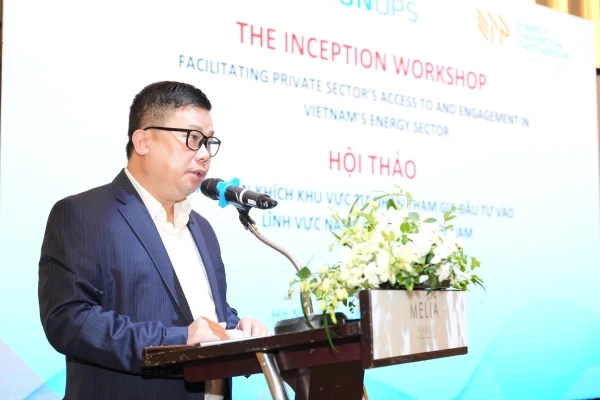
Mr. Le Tuan Anh - Director of the Department of Industrial and Service Economics (Ministry of Planning and Investment).
In fact, both domestic and foreign private enterprises are increasingly interested in the energy sector in Vietnam. However, in reality, there are still many barriers that need to be removed from the legal framework, land policies to the public-private partnership mechanism (PPP) to create more favorable conditions for this sector.
Analyzing in depth the current situation and orientation of the private sector to participate in the electricity industry, Mr. Pham Minh Hung - Deputy Director of the Department of Industrial and Service Economics ( Ministry of Planning and Investment ) said that in recent times, Vietnam has had many policies to encourage the private sector to participate in the electricity industry. Regarding general policies, there is Resolution No. 10 of the Party Central Committee on developing the private economy to become an important driving force of the socialist-oriented market economy.
Resolution No. 55 of the Politburo on Vietnam's national energy development strategy also raised a number of contents related to the private economy. That is to encourage and create all favorable conditions for economic sectors, especially private economic zones, to participate in energy development; resolutely eliminate all manifestations of monopoly, competition, inequality, and lack of transparency in the energy sector; create a favorable, transparent, and public environment, plan a portfolio of investment projects, and remove all barriers to attract investment.
Regarding the Electricity Law, after 20 years of implementing and perfecting the electricity law, the private sector has now been allowed to invest in all stages of the electricity industry from generation, transmission to distribution, except for some state monopoly activities for the purpose of ensuring national energy security as clearly stated in the Electricity Law 2024.
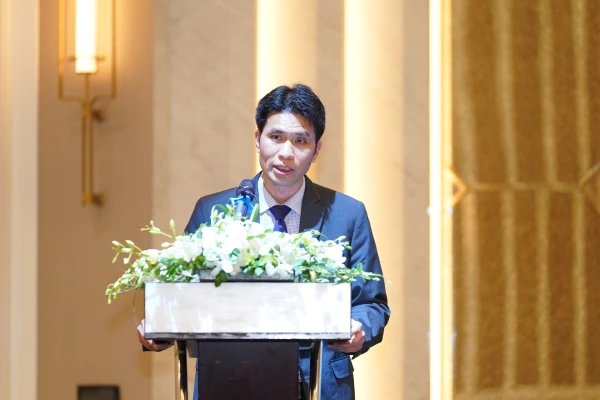
Mr. Pham Minh Hung - Deputy Director of the Department of Industrial and Service Economics (Ministry of Planning and Investment).
However, private projects still mainly focus on power sources, while there are not many commercial transmission grid projects.
The main reason is due to legal and practical problems in project implementation, including financial arrangements, investment efficiency as well as compensation and site clearance. According to Mr. Hung, it is necessary to continue studying the characteristics of transmission grid projects to find solutions to open up private capital flows into this field.
In addition to legal barriers, Mr. Hung said that according to Power Plan VIII, the investment demand in the electricity industry is very large, averaging about 13.5 billion USD/year in the 2021-2030 period and 20-26 billion USD/year in the 2031-2050 period. Meanwhile, the total investment capital of state-owned corporations such as EVN, PVN and TKV in the 2021-2024 period only reached 16.9 billion USD, meeting only about 31% of the annual capital demand.
The pressure to arrange capital is increasing as EVN and PVN have to prepare to invest in the Ninh Thuan 1 and 2 nuclear power projects according to the newly assigned tasks. Therefore, attracting private investment is an important factor to ensure energy security and maintain the electricity industry's growth rate of 12-16%/year.
Solutions to attract private investment
To encourage private participation in the electricity sector, Mr. Hung proposed a number of key solutions. Among them, it is necessary to reform the electricity price mechanism so that electricity prices accurately reflect production costs, creating conditions for businesses to have reasonable profits when investing in the electricity sector. Electricity prices must also be public, transparent, and not discriminate between economic sectors.
The State needs to have a clear mechanism on electricity purchase prices, create a healthy competitive environment and protect the legitimate rights of both electricity enterprises and electricity customers.
Another important task is to reform and perfect the institutions. The political system is focusing on reforming and perfecting the institutions, removing barriers and unlocking resources. The task of each sector and each level is to identify the barriers, the management needs and the necessity of management in order to eliminate cumbersome procedures and promote investment resources.
From a business perspective, Mr. Phan Thanh Tung - Project Development Director of IPC Construction Joint Stock Company - said that the Government needs to have policies to support Vietnamese enterprises to participate more deeply in the renewable energy value chain such as wind power and solar power.
"Vietnam needs to mobilize large capital sources with preferential interest rates. Currently, most foreign capital comes from export credit channels (ECA), but power purchase contracts are still not attractive enough for international financial institutions to provide capital. Therefore, it is necessary to improve contract terms to better attract foreign capital flows," said Mr. Tung.
He also stressed the importance of promoting localization in the energy sector. Vietnamese contractors and investors have the capacity to participate more deeply in the value chain, but need more support from the State in terms of mechanisms and policies for sustainable development.
Minh Thu
Source: https://doanhnghiepvn.vn/kinh-te/chinh-sach/giai-phap-nao-de-thu-hut-tu-nhan-dau-tu-vao-nganh-nang-luong/20250218062020165










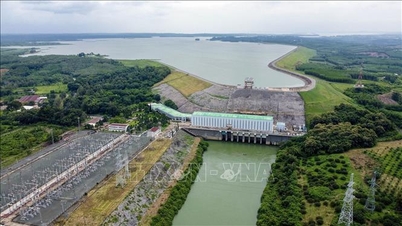
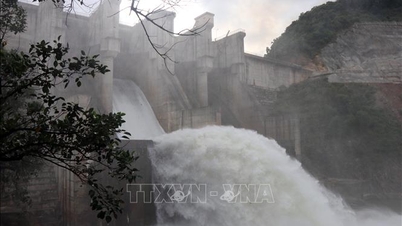
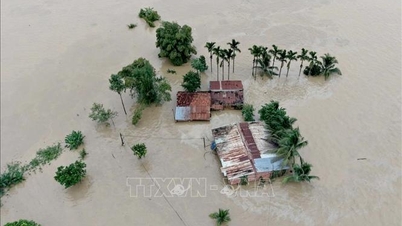












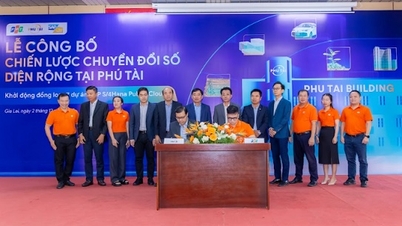





































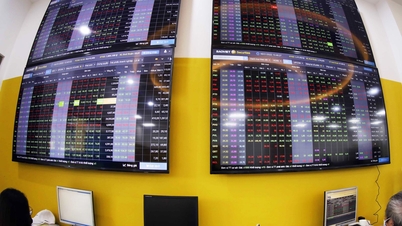































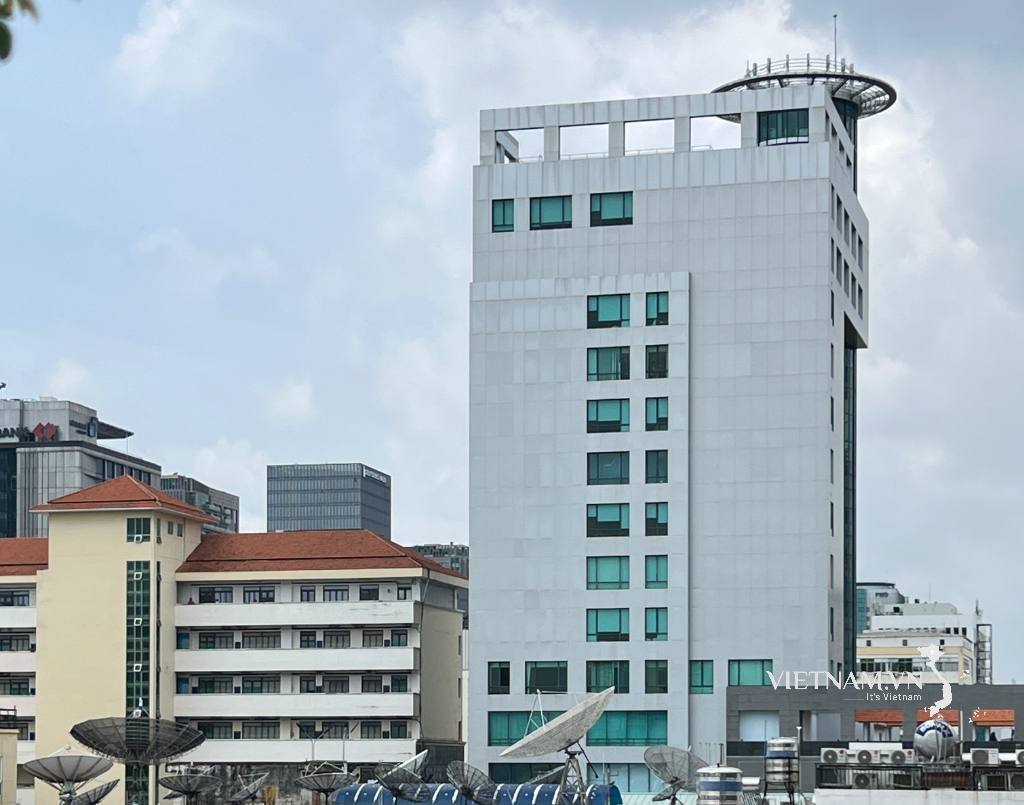







Comment (0)